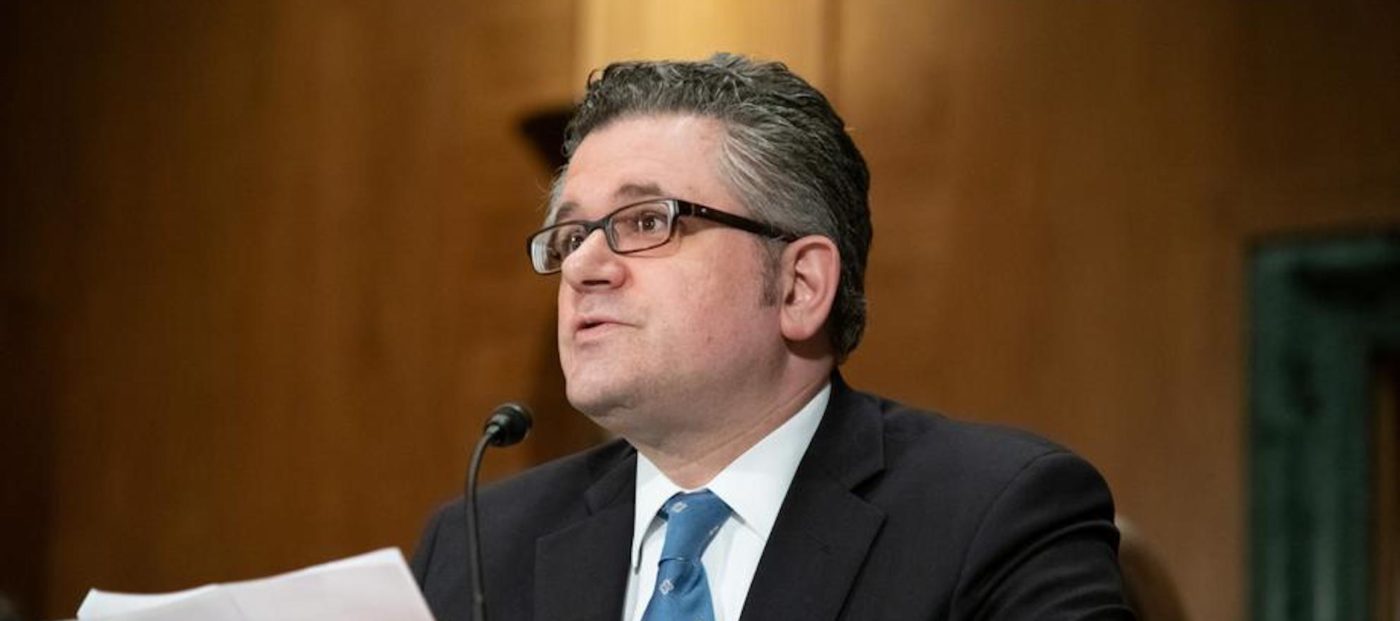Responding to industry warnings of a looming cash crisis among non-bank mortgage lenders, the head of the Federal Housing Finance Agency said Tuesday he sees “zero evidence” that the federal government needs to intervene.
FHFA Director Mark Calabria told the Wall Street Journal, “I’ve seen zero [evidence] to suggest that there’s a systemic crisis across the nonbank servicers. If this goes on for a year, maybe. But I think the frustration here is a lot of just misrepresentation.” He dismissed their complaints as “spin.”
The Mortgage Bankers Association (MBA) quickly condemned Calabria’s comments.
“The Director’s unwillingness to offer support from Fannie Mae and Freddie Mac for the very firms that he and Congress asked to execute his agency’s forbearance plan only reinforces why the Federal Reserve and U.S. Treasury must create a financing program to help residential and commercial/multifamily mortgage servicers who will have to provide unprecedented levels of mortgage payment forbearance,” MBA President and CEO Robert D. Broeksmit said.
“Servicers are eager to provide this help, and while we all hope that the duration and severity of the economic dislocation caused by the pandemic will be manageable, we must plan now for a more extended disruption, as I made clear to the Director this evening.”
A coalition of 15 mortgage, housing and real estate organizations – including the MBA – strongly disagree with Calabria’s comments. They sent a letter to the FHFA and other regulators saying they need to ensure cash is available to mortgage lenders who may need financial support as they help homeowners and renters during the coronavirus pandemic.
They urged FHFA, the Federal Reserve and the Department of Treasury to create a liquidity facility to support lenders who are providing relief under the CARES Act.
“Any further delay could lead to greater uncertainty and volatility in the market,” the groups said in the letter. “(We) strongly urge the Treasury Department, the Federal Reserve, and FHFA to establish a strong, reliable source of liquidity for mortgage forbearance – and to do so quickly.”
Also Read: Senators Say Fed Must Support Non-Bank Lenders
The $2 trillion CARES Act comes with significant benefits for homeowners who are unable to make their mortgage payments, most notably a moratorium on foreclosures and the right to forbearance.
Forbearance allows borrowers with a federally backed mortgage to put off payments for at least six months if they suffer economic hardship during the pandemic. The law requires lenders to approve forbearance if requested by the borrower, touching off a scramble by homeowners as bills came due this month.
The MBA released a report Tuesdaythat found forbearance requests grew by 1,270 percent between the week of March 2 and the week of March 16, and another 1,896 percent between the week of March 16 and the week of March 30. The share of loans in forbearance grew from 0.25 percent to 2.66 percent between March 2 and April 1.
The MBA estimates that the burden on lenders could range from $75 billion to $100 billion or higher if one-quarter of borrowers take advantage of forbearance for six months or longer.
What’s the issue? As The Wall Street Journal explains:
Mortgage companies, such as Mr. Cooper Group Inc. and Quicken Loans Inc., collect payments from homeowners and pass them on to investors who hold securities issued by Fannie and Freddie.
The mortgage companies are on the hook to continue payments to investors even if homeowners fall behind. The companies are eventually reimbursed by Fannie and Freddie, but the process could take several months.
Normally this isn’t a problem. But the mortgage companies, also known as servicers, are bracing for a cash crunch as homeowners take advantage of a government offer to suspend payments during the coronavirus pandemic. The offer is part of the $2.2 trillion relief package enacted last month.
That was reflected in the MBA numbers put out Tuesday.
“The FHFA Director’s recent statements send a troubling message to borrowers, lenders, and the mortgage market,” Broeksmit said. “Servicers are required to offer borrowers widespread forbearance under a plan devised and approved first by FHFA and then codified by the CARES Act. Fannie Mae and Freddie Mac are contractually obligated for the payments to investors. Since Fannie Mae and Freddie Mac will eventually reimburse mortgage servicers for the payments they must advance during forbearance, Director Calabria should advocate for the creation of a liquidity facility at the Fed to ensure the stability of the housing finance market.”
Reuters reported Tuesday that members of the Treasury Borrowing Advisory Committee (TBAC), which advises the U.S. government on the strength of the economy and debt issuance, want a facility to cover loans backed by government-run housing finance giants Fannie Mae and Freddie Mac, which cover a far larger proportion of the overall market.
Investment banker R. Christopher Whalen has called for President Trump to fire Calabria for his refusal to establish the liquidity facility.
“Years from now, Director Calabria may be remembered for starting the housing industry meltdown of 2020,” he wrote in an op-ed this week.
